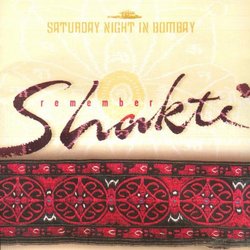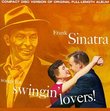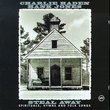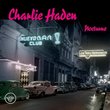| All Artists: John McLaughlin, Remeber Shakti Title: Remember Shakti: Saturday Night in Bombay Members Wishing: 1 Total Copies: 0 Label: Umvd Labels Release Date: 6/19/2001 Genres: International Music, Jazz, Pop Styles: Jazz Fusion, Modern Postbebop, Bebop Number of Discs: 1 SwapaCD Credits: 1 UPC: 044001416422 |
Search - John McLaughlin, Remeber Shakti :: Remember Shakti: Saturday Night in Bombay
 | John McLaughlin, Remeber Shakti Remember Shakti: Saturday Night in Bombay Genres: International Music, Jazz, Pop
Guitarist McLaughlin and tabla drummer Zakir Hussain first joined together as Shakti in 1975 to fuse together the rhythmic and improvisational energies of jazz and the classical music of northern India. Regrouping in the l... more » |
Larger Image |
CD DetailsSynopsis
Amazon.com Guitarist McLaughlin and tabla drummer Zakir Hussain first joined together as Shakti in 1975 to fuse together the rhythmic and improvisational energies of jazz and the classical music of northern India. Regrouping in the late '90s, the two have since raised the level of the synthesis significantly in a quartet with the extraordinary young mandolin player U. Shrinivas and percussionist V. Selvaganesh. These recordings come from December 2000, when Remember Shakti was playing concerts in Bombay at the end of a world tour. It's clearly the occasion for celebration, with the group expanding to include several guests, but it's distinguished by the same quality that has graced their live performances and the previous CD, The Believer: a hypnotic luminosity that enfolds flights of extraordinary virtuosity and sustained dialogue into a tranquil whole. That mood is further enhanced here by the setting, the layered polyrhythms of multiple drummers, and the singing of Shankar Mahadevan. The wedding of East and West is most apparent in McLaughlin's sprightly "Luki," with the guitarist's harmonies specifically invoking jazz. "Shringar," nearly 27 minutes long, is played by a quartet, with its composer Shiv Kumar Sharma on santur, a Persian zither. Beginning in a sustained meditative stillness, it eventually builds to one of McLaughlin's most brilliant solos. As they have in the past, McLaughlin and Hussain again give new meaning and possibilities to the idea of "world music." --Stuart Broomer Similarly Requested CDs
|
CD ReviewsSaturday Night in Bombay - Remember Shakti JFDerry | Edinburgh United Kingdom | 08/02/2001 (5 out of 5 stars) "From the very opening few licks of this new album, straight away you get the feeling that this is a more buoyant lyrical music than the intense, introspective investigations that we were treated to with Remember Shakti and The Believer. It's funky, bursting with melody, and it's going to make you dance, for joy. Remember how Natural Elements felt after A Handful of Beauty? Well, here we go again. Each incarnation of Remember Shakti produces a sound very much reflective of it's musicians. The original 1997 tour conjured aural visages of desert's dawn, all was peace, all was calm. Hariprasad Chaurasia's winged bansuri flew us beyond the clouds to dream palaces in the mind. Then The Believer burnt our wings with the concert pyrotechnics that had us, the global audience, stunned throughout the subsequent touring, made us clamour for encore after encore, and never sent us home disappointed. Now Saturday Night In Bombay celebrates Shakti's return with a very special recording indeed - this IS history, shared over 2 nights, in a very fitting place, by a very lucky audience. This time a festival of music in Mumbai presented a new source of musical influence for tapping. Keep the time nurtured relationship, the Shakti core that has opened our ears each time they lay hands on guitar, tabla, mandolin, kanjira, ghatam, mridangam, but add to this recipe a little more spice, a broader palate, a little more fire. Bring in the permeating vocals of Shankar Mahadevan to give a sense of folk. Bring in the slide guitar of Debashish Bhattacharya for some frenetic tradeoffs. Bring in the santur of Shiv Kumar Sharma to woo our jiggle-weary limbs and unveil yet hidden depths in this heady mixture. But augment that rhythm with an extraordinary array of drums and percussion, lest the tops of our heads fly off to transcend this mortal dwelling. There are 4 tracks on the album running a generous total of 62:01 minutes. To start JM's Luki (5:39), the guitar sets the rhythm, calling the other ten players to the banquet. The percussion glides and Shankar Mahadevan makes the reply. The full rhythmic section slots in and soon we're bubbling, rocking along, always reciting the opening phase. This is more song-like than the raga-derived pieces of previous albums. It's a catchy foot-tapping opener with a "standard" western drum kit helping to drive the beat. The group is slimmed back down for Shiv Kumar Sharma's lengthy Shringar (26:38) which highlights the santur, played with an eerie sensitivity that wafts the tune into consciousness. Soon the guitar assists and finally swaps places to take turns in painting the textural backdrop. The lilting theme is stated strongly at over seven minutes into the piece defining the pace of this longer investigation, a measured cadence providing space enough for flurries of short but exquisite guitar solos inter-played with longer multi-layered explorations by santur. All this is underpinned by precocious rhythm, later tempted into a heavier thunder by the exciting guitar phrasing and a choice punctuating of the theme by santur. Unified they rise to the close, santur and kanjira blazing, then engulfed by understandably rapturous applause. Again guitar and voice draw us gently into U. Shrivinas' Giriraj Sudha (10:45), before the mandolin interrupts to declare the playful melody and the song takes off with a dense percussive rhythm now strengthened with tavil. It is predominantly a vocal piece, guitar echoing voice to provide a choral feel whilst the mandolin anchors the central melody, exploring some solo territory, but never venturing too far. Mandolin and Hindustani slide guitar set the delicate tones for Zakir Hussain's Bell'Alla (18:48), before JM's guitar enters to broaden the spectrum, a few carefully placed notes that summarise the sound that he has developed since resurrecting this divine project. The slide guitar lulls us with sitar-like cascades, the guitar tone is warm and gentle. Entering now, four minutes in, a pulsation, a hypnotic phrase on mandolin, picked up by tabla and percussion and thrown full-bodied to unanimity. The re-introduction of the drum kit solidifies the foundations for short climbing phrases from the stringed instruments, before more open sections for solo exploration, each undersigned with a dense restating of the main figure. The slide guitar playing is astonishing but JM takes the greatest risk here in the next solo spot, pushing the limits of the piece, searching for something new, the rhythm section in tow, riding a funky backbeat to that purer phrase, a clearer musical statement. The kanjira and tabla solos are not as extended as audiences have experienced previously plus they are kept separate with no echoed runs. The remaining drums and percussion now rejoin to really beat it out until the whole re-enter to drive the piece to a climax. The last note is met with wild exclamation and fades out to stage introductions and appreciation for all that has passed. The inclusion of the great guest musicians robs us of the usual magical communication heard between the core members, but we have plenty of that documented, and the extra depth and ideas make this not so much another Shakti album but the capture of an excellent historic concert. It could only have been sensible for JM to fit into this mixture in the way that he did. Any more pronounced and he would have been conspicuous in the concerts' context. Any less and he would have disappeared. As is, he skilfully employs his sound to define a niche in the soloing space, to sit alongside the other soloists. He underplays this comping so as not to force his volume, thereby obliterating the myriad of textures provided in the rhythm. The vocal pieces bring a whole dimension not previously experienced from Shakti recordings other than konnakol. The guitar, mandolin and Hindustani slide guitar complement to form the harmonious middle whilst the rhythm section continues to be breathtaking. The use of a western style drum set has a profound effect on the bass dynamics and perhaps clouds some of the detail, particularly from Hussain's dagga. However, tasteful underplaying along with some brilliantly interspersed snare shots does more than just amplify the other drums, moreover positively driving the beat, perhaps even inspiring JM's rocking solo heard on the final track. Alas, no visual media is provided with Saturday Night In Bombay as was with the special edition of The Believer, however, the occasion was filmed and perhaps greater plans are afoot. The album has a subtle cover design in the vein of it's predecessor albums but with a noticeable return to the original Shakti script. Unfortunately, although informative and enthusiastic, the liner notes are poor, possibly loosing something in translation from the author's native French, and no photographs are included that are recognisable as being from the concerts. Perhaps because of the live setting, the recording quality is a little thin, accentuating some percussive taps in the high register, and the bass a little dull, don't expect the tabla sound achieved on The Believer. The sound is not an impediment and there is a slight improvement when listening with headphones (see below for a commentary on how it really sounded and the live experience). But it's really about the music and that cannot be questioned. Each piece was penned by a different author and has it's own special feel and dynamic, giving the album an incredible diversity. This is an important album for JM fans, Shakti fans, Indian music fans, fusion fans, and lovers of live music. The excitement of the event is tangible via the music, and the impulse to sing along and get up and dance is uncontrollable, in fact, da dup dada da de..." Another great CD from McLaughlin and the group!!! L. Rosenbaum | Fremont, Ca United States | 06/27/2001 (5 out of 5 stars) "This CD recorded live in India in Dec. of 2000 features the same musicians as "Believer" with many guest artists along for the ride. The CD features John McLaughlin on guitar, U. Shrinivas on mandolin, Zakir Hussain on tablas, and V. Selvaganesh on kanjira, gatham and mridangam. Joining these musicians at what McLaughlin calls a "Shakti Summit" is vocalist Shankar Mahadevan; Hindustani slide guitarist Debashish Bhattacharya; santur player Shiv Kumar Sharma; drummer-percussionist (traps) Sivamani; dholak players Bhavani Shankar (also playing pakhawaj), Roshan Ali, and Aziz; Taufiq Quareshi playing def, dafli and perc.; and A. K. Pallanivel on tavil. There are only four tracks on this CD in which only the first track called "Luki" written by McLaughlin features all of the musicians except Sharma. The piece begins with a short repetitive phrase for all the melody instruments than the theme begins in unison. A short exchange of solos of 8 beats each between the Bhattacharya and McLaughlin. Then the same happens between Mahadevan and Shrinivas. The piece ends with a statement of the theme again. The second piece by Sharma called "Shringar" features only McLaughlin, Sharma, Hussain and Selvaganesh. This is the longest (26.5 min) and is the slowest to develop. It is a traditional duet performance between the santur and guitar that begins with the slow introduction to the raga with Sharma and McLaughlin taking turns. The raga eventually builds and as the tabla and kanjira make their entrance. The improvisation ends as the tempo increases ending in a frenzy of notes. "Giriraj Sudha" the third piece on this disc composed by U. Shrinivas. Beginning with a statement of the raga between Mandolin and voice. Then the vocalist sings on an undisclosed text with mandolin, tabla, mridangam and tavil providing the background accompaniment. Solos between Mahadevan, singing the note names in the traditional way, and Shrinivas follow. According to the liner notes McLaughlin plays on the tune but I don't hear him. The last work by Hussain is called "Bell' Allah." This features Great solos by McLaughlin, Shrinivas, and Bhatacharya followed by kanjira and tabla solos and duets later joined by the drummer. I always wonder what happed to the rest of the music played at these concerts. I am sure there was more than the 62 minutes presented on this disc. Keep up the great work Shakti and company." "Creative intelligence, beauty and power." spiral_mind | Pennsylvania | 11/09/2002 (4 out of 5 stars) "That's what the word Shakti apparently means, and you can't help but hear it in everything they play. This is an enchanting blend of Indian style & sensibility with the dynamic improvisation of American jazz - THIS is what 'fusion' really means. The original group emerged with a phenomenal debut in 1976 (also an excellent choice by the way), split up after two more albums, and stayed dormant for 20 years until the energence of Remember Shakti in the late 1990s. We can only wonder what they might have done with all that time if they'd stayed together, but no matter: founder John McLaughlin and his trademark hyper guitar are present as always. He's also joined again by original rhythm master Zakir Hussain, who makes a simple tabla pulse, cry and sing with his masterful rhythmic touch. The basic sound is expanded with the addition of U. Shrinivas (a virtuoso on the mandolin) and V. Selvaganesh, who plays kanjira (a smaller percussion instrument). Saturday Night in Bombay marked the end of a very successful tour for the reformed group, recorded over a couple nights where several distinguished guests were able to drop in. Their names probably won't ring a bell for anyone not familiar with Indian music already (they didn't for me), but the music is what's important. The sound everyone makes together is exotic yet familiar, worldly yet intimate, and the group interaction is nothing short of phenomenal.
McLaughlin's electric (I think) guitar slides and sings through the notes like quicksilver, having left behind that acoustic twang found in Shakti's earlier work. Even the couple times he plays with some echo and slight effects (there's one point in "Giriraj Sudha" where I could swear he's quoting Rush's "Xanadu"), it never sounds contrived. Everything we hear is about joining things together: eastern and western musical traditions, the electric and the acoustic, performers and audience. That first '76 release, Shakti With John McLaughlin, is usually recommended as a prime choice since it's the one that started it all. Anyone curious to hear more probably won't be disappointed with any of them, and I wholeheartedly recommend Saturday Night in Bombay." |

 Track Listings (4) - Disc #1
Track Listings (4) - Disc #1








